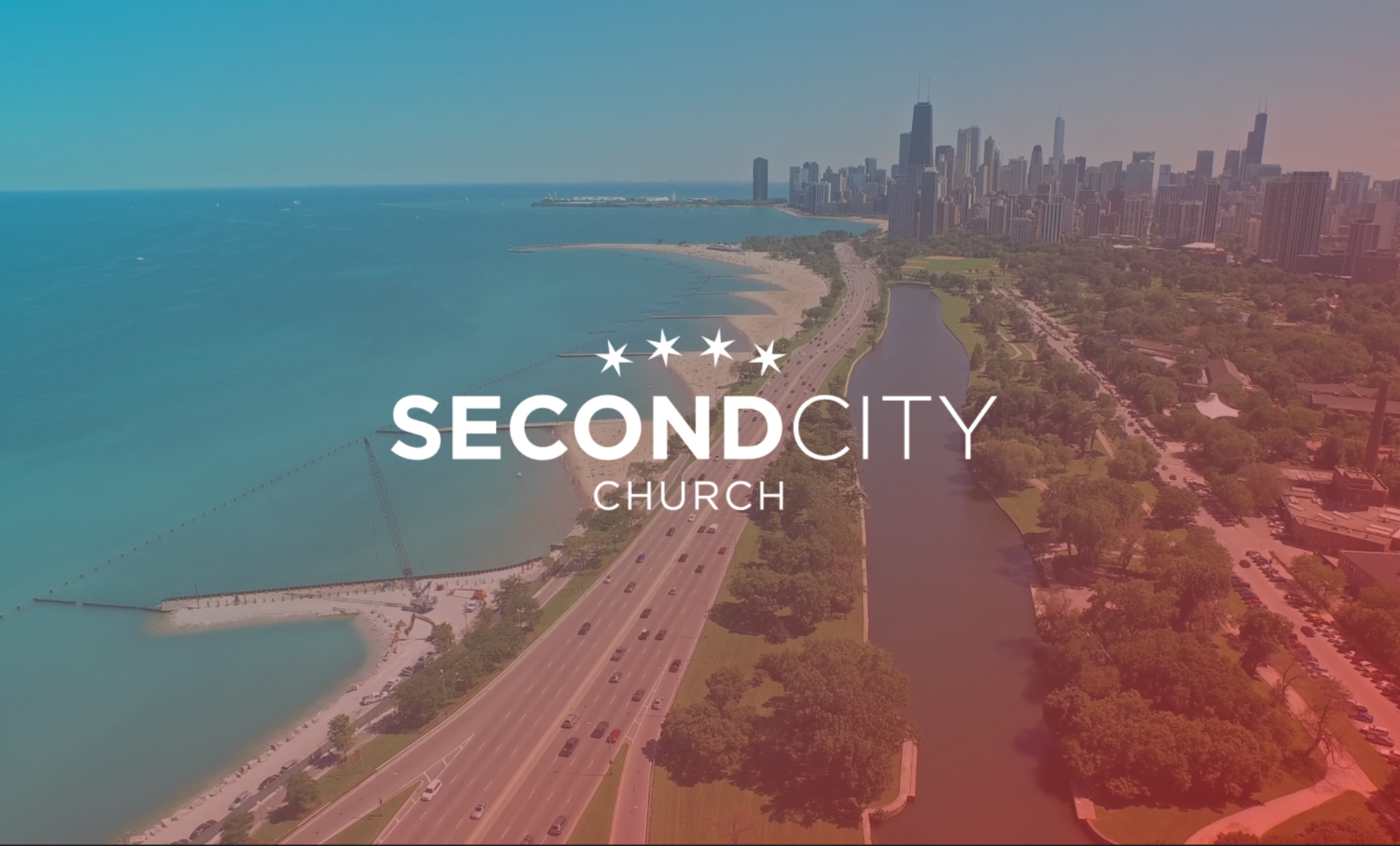Royals: Dismantling False Gods One Plague at a Time
Focus: God’s dismantling of the Egyptian gods through the 10 plagues showcases His superiority in the past, in the present, and in the future. He is the One True God. Serve Him and Him alone.
Setting the scene: Roughly 3,300 years ago God’s chosen people, the Israelites, were settled in Egypt. Because of their great size, the Pharaoh (royal ruler) of Egypt was threatened and chose to enslave them. They were slaves for hundreds of years (215-400, depending on interpretation) and finally God responded to their cries for deliverance and sent Moses, a Hebrew child raised by Egyptian royalty to bring them out of Egypt. After killing an Egyptian as a young man and fleeing, Moses returns to Egypt from exile, sent by God, to lead his people out of captivity. Moses and his brother Aaron proclaim this command from their God to Pharaoh: let my people go. Pharaoh refuses, hardening his heart, and thus God sends 10 plagues upon Egypt to ultimately free His people.
Prior to the 10 Plagues, both Moses and Aaron met with Pharaoh and Pharaoh challenged them by saying, “perform a miracle.”
Exodus 7:8-13
The Lord said to Moses and Aaron, “When Pharaoh says to you, ‘Perform a miracle,’ then say to Aaron, ‘Take your staff and throw it down before Pharaoh,’ and it will become a snake.”
So Moses and Aaron went to Pharaoh and did just as the Lord commanded. Aaron threw his staff down in front of Pharaoh and his officials, and it became a snake. Pharaoh then summoned wise men and sorcerers, and the Egyptian magicians also did the same things by their secret arts: Each one threw down his staff and it became a snake. But Aaron’s staff swallowed up their staffs. Yet Pharaoh’s heart became hard and he would not listen to them, just as the Lord had said.
Before the 10 Plagues even began, God proved that He was superior to Pharaoh’s gods when the snake Moses and Aaron conjured swallowed up the sorcerers’ snakes.
While other gods of this world can imitate God, the One True God will always and forever remain superior to the counterfeits.
By this we can know: Not everything that looks like God, that feels like God, that acts like God, is of God.
Jesus confirms this in Matthew 7:21-23
Not everyone who says to me, ‘Lord, Lord,’ will enter the kingdom of heaven, but the one who does the will of my Father who is in heaven. On that day many will say to me, ‘Lord, Lord, did we not prophesy in your name, and cast out demons in your name, and do many mighty works in your name?’ And then will I declare to them, ‘I never knew you; depart from me, you workers of lawlessness.’
Jesus is dismissing those who did miracles. Just because someone may display a miracle does not mean that they are of God.
Have you ever received a prophetic word that was preluded by a miracle? Maybe a word of knowledge - someone telling you things that they could not have possibly known about you? While God does speak to us in this way, that does not necessarily mean that when someone displays a mighty work that he or she is truly of God.
We judge a prophecy by the prophecy itself, not a sign that seems to confirm it. Our awe and wonder should be reserved for the point of His miracles, not for the miracle itself.
Jesus tells us how to determine if something said is of God or not in Matthew 7:24-27
Everyone then who hears these words of mine and does them will be like a wise man who built his house on the rock. And the rain fell, and the floods came, and the winds blew and beat on that house, but it did not fall, because it had been founded on the rock. And everyone who hears these words of mine and does not do them will be like a foolish man who built his house on the sand. And the rain fell, and the floods came, and the winds blew and beat against that house, and it fell, and great was the fall of it.”
The test is placing every claim of God made by man against His very word – the Word of God, the Bible. That is how you build your house upon the rock.
The Israelites had a broken spirit due to the harshness of their slavery (Exodus 6:9b) and likely were swayed by the very mighty works that the Pharaoh’s magicians performed in front of Aaron and Moses. But Aaron and Moses were not swayed because they had heard from God Himself - no miracles could convince them otherwise.
The Israelites likewise had the Word of God to rely on via the Abrahamic Covenant.
In Genesis 12:6-7 God spoke to Abraham (who was called Abram at the time):
Abram traveled through the land as far as the site of the great tree of Moreh at Shechem. At that time the Canaanites were in the land. The Lord appeared to Abram and said, “To your offspring[c] I will give this land.” So he built an altar there to the Lord, who had appeared to him.
Egypt was never promised as the settling place of the Israelites, so their hope was to be on things to come, not things that were (their captivity, the mighty works of the magicians, etc.).
Through the 10 Plagues, God will further demonstrate His superiority over Egypt’s gods.
Exodus 7:14-24
Then the Lord said to Moses, “Pharaoh’s heart is unyielding; he refuses to let the people go. Go to Pharaoh in the morning as he goes out to the river. Confront him on the bank of the Nile, and take in your hand the staff that was changed into a snake. Then say to him, ‘The Lord, the God of the Hebrews, has sent me to say to you: Let my people go, so that they may worship me in the wilderness. But until now you have not listened. This is what the Lord says: By this you will know that I am the Lord: With the staff that is in my hand I will strike the water of the Nile, and it will be changed into blood. The fish in the Nile will die, and the river will stink; the Egyptians will not be able to drink its water.’” The Lord said to Moses, “Tell Aaron, ‘Take your staff and stretch out your hand over the waters of Egypt—over the streams and canals, over the ponds and all the reservoirs—and they will turn to blood.’ Blood will be everywhere in Egypt, even in vessels[a] of wood and stone.”Moses and Aaron did just as the Lord had commanded. He raised his staff in the presence of Pharaoh and his officials and struck the water of the Nile, and all the water was changed into blood. The fish in the Nile died, and the river smelled so bad that the Egyptians could not drink its water. Blood was everywhere in Egypt. But the Egyptian magicians did the same things by their secret arts, and Pharaoh’s heart became hard; he would not listen to Moses and Aaron, just as the Lord had said. Instead, he turned and went into his palace, and did not take even this to heart. And all the Egyptians dug along the Nile to get drinking water, because they could not drink the water of the river.
God directly confronts the Egyptian god Hapi, the god of the Nile, by symbolically killing him by bringing literal blood and death to the entirety of the river, disrupting Egyptian culture, economy, and growth.
The magicians, however, replicate this miracle (on a much smaller scale) and Pharaoh uses this as confirmation bias that he and his gods are still in control. He does not yield.
Do we fall into the same trap? Are we looking so eagerly for a confirmation of our own beliefs that we do not stop to compare a sign or message to the ultimate standard of God, to the Bible? That is what Pharaoh did, and he proved himself over and over to be a fool.
The second plague is Frogs - Exodus 8:1-15
Then the Lord said to Moses, “Go to Pharaoh and say to him, ‘This is what the Lord says: Let my people go, so that they may worship me. If you refuse to let them go, I will send a plague of frogs on your whole country. The Nile will teem with frogs. They will come up into your palace and your bedroom and onto your bed, into the houses of your officials and on your people, and into your ovens and kneading troughs. The frogs will come up on you and your people and all your officials.’” Then the Lord said to Moses, “Tell Aaron, ‘Stretch out your hand with your staff over the streams and canals and ponds, and make frogs come up on the land of Egypt.’”So Aaron stretched out his hand over the waters of Egypt, and the frogs came up and covered the land. But the magicians did the same things by their secret arts; they also made frogs come up on the land of EgyptPharaoh summoned Moses and Aaron and said, “Pray to the Lord to take the frogs away from me and my people, and I will let your people go to offer sacrifices to the Lord.” Moses said to Pharaoh, “I leave to you the honor of setting the time for me to pray for you and your officials and your people that you and your houses may be rid of the frogs, except for those that remain in the Nile.” “Tomorrow,” Pharaoh said. Moses replied, “It will be as you say, so that you may know there is no one like the Lord our God. The frogs will leave you and your houses, your officials and your people; they will remain only in the Nile.”
After Moses and Aaron left Pharaoh, Moses cried out to the Lord about the frogs he had brought on Pharaoh. And the Lord did what Moses asked. The frogs died in the houses, in the courtyards and in the fields. They were piled into heaps, and the land reeked of them. But when Pharaoh saw that there was relief, he hardened his heart and would not listen to Moses and Aaron, just as the Lord had said.
But we see it again – the magicians mimic this plague. This time, however, Pharoah does not accept this as an adequate dismissal of Israel’s God. He is growing tired of their copying and he even yields, asking Moses and Aaron to pray to their God to take away the frogs and he will then let the people go.
However, we see in v15 that once there was relief, Pharaoh hardened his heart again and would not let the Israelites go.
Does this sound familiar? How many times have we asked God for something, God delivers it, and then almost immediately after we return to our old ways?
We need to recognize that God is superior to our ways, to the things that bring us comfort, and not be like Pharoah who uses God like a genie, receiving that which we ask and returning nothing to His glory.
After his refusal, God sends the plague of gnats in Exodus 8:16-19
Then the Lord said to Moses, “Tell Aaron, ‘Stretch out your staff and strike the dust of the ground,’ and throughout the land of Egypt the dust will become gnats.” They did this, and when Aaron stretched out his hand with the staff and struck the dust of the ground, gnats came on people and animals. All the dust throughout the land of Egypt became gnats. But when the magicians tried to produce gnats by their secret arts, they could not.
Since the gnats were on people and animals everywhere, the magicians said to Pharaoh, “This is the finger of God.” But Pharaoh’s heart was hard and he would not listen, just as the Lord had said.
This time, the magicians could not use their secret arts to imitate God. They even admit to Pharaoh: “this is the finger of God.” Yet, Pharaoh refuses to listen.
This reveals the true god that Pharaoh served - himself. He used the mimicry of the magicians to justify his decisions, but at the end of the day he still had his power, economy, and slaves - those were his true gods. God will now begin to dismantle those gods one by one.
Plagues 4-9:
Plague 4: dense swarms of flies all throughout Egypt (Ex. 8:20-30).
Plague 5: death of the Egyptians’ livestock (Ex. 9:1-7).
Plague 6: every Egyptian was struck with festering boils upon their skin (Ex. 9:8-12).
Plague 7: Hail - where a hailstorm of ice and lightning killed all who ignored Moses’ warning of the imminent storm and who didn’t run for shelter, stripped the growth of the fields and the trees, yet did not touch the land of Goshen, where the Israelites lived (Ex. 9:13-35).
Plague 8: locusts that covered the land and anything that managed to survive the hailstorm and devoured it. The Bible says that they covered the ground so densely that it was black and nothing green remained on a tree or plant in all the land of Egypt (Ex. 10:1-20)
Plague 9: darkness over all the land, a direct attack on perhaps the most important god of the Egyptian religion: Ra the sun god. God proved his superiority over the Egyptian gods so thoroughly that even the god they could always depend on, as dependable as the sun rising and setting every morning and night, was completely and utterly rendered obsolete. (Ex. 10:21-29)
Throughout plagues 3-9 Pharaoh attempted to barter with God, telling Moses that would give the Israelites certain privileges under his terms. Pharaoh was trying to “serve” God while also simultaneously clinging to his gods, that of power, status, culture, etc. But God rejected these compromises.
We cannot serve God half-heartedly. Our God has made it very clear – that if you choose to serve Him, you choose to serve Him and Him alone. He must be Lord of your life, that is what he is owed, that is what He demands.
What gods are you still trying to serve? What systems are in place in your life that you look to for provision, protection, and purpose?
Whether it is now or in the future, you can be sure that God will dismantle those gods and if you are still holding onto them, it will not be pleasant. When God ultimately does this, we want to be in Goshen, or in other words, we want to be on the other side of it. We want to cling wholly to the One True God and cheer as he destroys false gods and reveals himself as the only one who is worthy of our praise. We don’t want to be under the hailstorm, in utter darkness, covered in flies, gnats, locusts, and frogs.We want to be delivered from that judgment.
This brings us to the final plague. Plague 10: The death of the firstborn in Exodus 12:1-13
The Lord said to Moses and Aaron in Egypt, “This month is to be for you the first month, the first month of your year. Tell the whole community of Israel that on the tenth day of this month each man is to take a lamb[a] for his family, one for each household. If any household is too small for a whole lamb, they must share one with their nearest neighbor, having taken into account the number of people there are. You are to determine the amount of lamb needed in accordance with what each person will eat. The animals you choose must be year-old males without defect, and you may take them from the sheep or the goats. Take care of them until the fourteenth day of the month, when all the members of the community of Israel must slaughter them at twilight. Then they are to take some of the blood and put it on the sides and tops of the doorframes of the houses where they eat the lambs. That same night they are to eat the meat roasted over the fire, along with bitter herbs, and bread made without yeast. Do not eat the meat raw or boiled in water, but roast it over a fire—with the head, legs and internal organs. Do not leave any of it till morning; if some is left till morning, you must burn it. This is how you are to eat it: with your cloak tucked into your belt, your sandals on your feet and your staff in your hand. Eat it in haste; it is the Lord’s Passover.
“On that same night I will pass through Egypt and strike down every firstborn of both people and animals, and I will bring judgment on all the gods of Egypt. I am the Lord. The blood will be a sign for you on the houses where you are, and when I see the blood, I will pass over you. No destructive plague will touch you when I strike Egypt.
Through this plague we can learn this:
God is patient and He is waiting for you to turn to Him. But we are not privy to the extent of His patience.
The events of Plague 10 are known as the “Passover” and it was a rare time in history where God’s judgement had a declared time and date. We do not have the same convenience.
Yet God desires that no one should perish.
2 Peter 3:8-9
“But do not forget this one thing, dear friends: With the Lord a day is like a thousand years, and a thousand years are like a day. The Lord is not slow in keeping his promise, as some understand slowness. Instead he is patient with you, not wanting anyone to perish, but everyone to come to repentance.”
2 Corinthians 6:2
“In a favorable time I listened to you,
and in a day of salvation I have helped you.”
Behold, now is the favorable time; behold, now is the day of salvation.
We must choose which god we will serve. What God should we want to serve? We should want to serve the God that tears apart every other god, the God of Exodus, who killed Hapi, Heqet, and Ra, and 2,000 others, who tore down every pillar of Pharaoh’s position: his power, his economy, his magicians, his deceit, his influence, his own self-proclaimed deity, the God who destroyed the land with ice and lightning, who blackened out the ground with locusts and the sky with darkness, THAT is the God that we want to serve. That is NOT the God we want to oppose, to barter with to share our hearts and services with other gods. He will not accept that compromise, He deserves our all and this story of the plagues of Exodus firmly displays why He was, is, and will be the superior choice over all other gods.
We must rely on Him and Him alone to save us. But save us from whom?
God is not saving you from yourself, He’s not saving you from your sins, from the other gods you may have in your life. When Jesus Christ came down to this earth to die on the cross on our behalf, He took our punishment – He took what we deserved. What did we deserve? Jesus took on the wrath of God. God, through the sacrifice of His son, is saving us from Himself. From His wrath that we justly deserve! But by His grace and mercy, through His deliverance, He will pass over us if we put our full faith and trust in the Lamb of God that was slain for us – just like the Passover lamb – Jesus Christ is our ultimate Sacrificial Lamb who received the judgment of God on our behalf.
I do not just want to be saved from the God of the plagues, of the hailstorm, blood river, and frog infestation, but the same God who spared the firstborns of whoever placed the blood upon their door frame is the same God who did NOT spare HIS firstborn to give us the ultimate justification that we did not deserve.
Romans 8:32-39
“If God is for us, who can be[i] against us? He who did not spare his own Son but gave him up for us all, how will he not also with him graciously give us all things? Who shall bring any charge against God's elect? It is God who justifies. Who is to condemn? Christ Jesus is the one who died—more than that, who was raised—who is at the right hand of God, who indeed is interceding for us.[j] Who shall separate us from the love of Christ? Shall tribulation, or distress, or persecution, or famine, or nakedness, or danger, or sword? As it is written,
“For your sake we are being killed all the day long;
we are regarded as sheep to be slaughtered.”
No, in all these things we are more than conquerors through him who loved us. For I am sure that neither death nor life, nor angels nor rulers, nor things present nor things to come, nor powers, nor height nor depth, nor anything else in all creation, will be able to separate us from the love of God in Christ Jesus our Lord.
The Egyptians brought everything they had against my God – they brought the power of over 2,000 pagan gods, wise men, sorcerers, a booming economy, an overbearing power, a ruler in Pharoah who was thought to be a god himself… and our God – He dismantled every single affront against Him and delivered His people from them.
He will do that for you as well
He not only wants to save you, but He wants to adopt you into His family, He wants to be for you, He desires that no one should perish. So know this: today is the day of salvation. Put your false gods away, repent and serve no other gods, place your faith and future in the One who is Superior to everything else yesterday, today, and forever.















